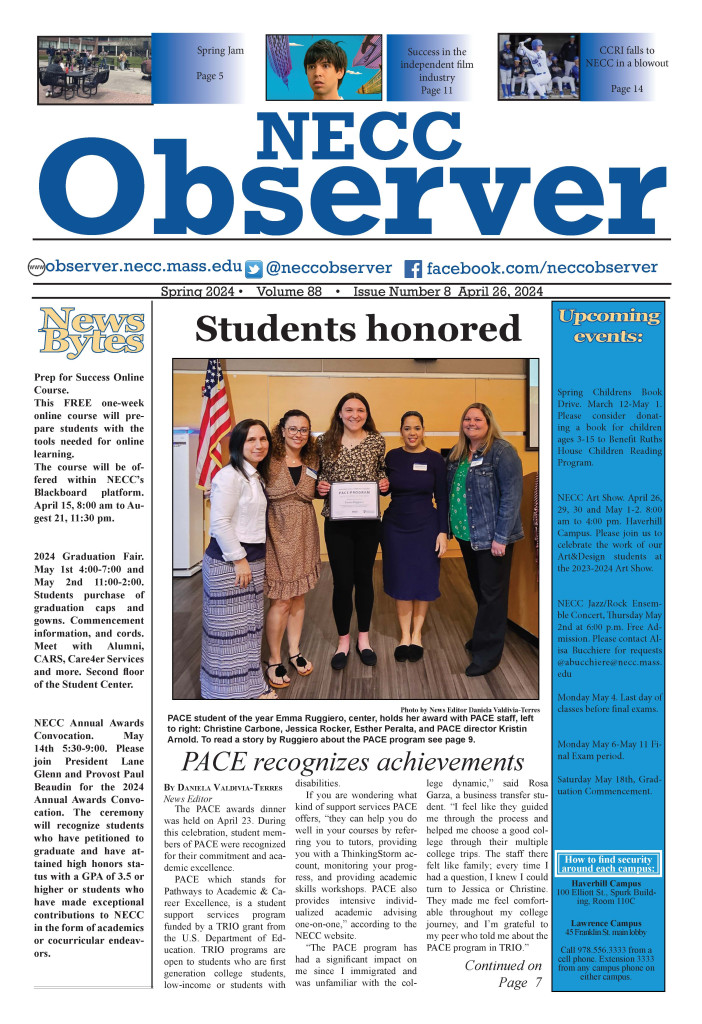By Emma Bogan
The issue of student loan debt has been at the forefront of the national conversation. Massachusetts Senator Elizabeth Warren has spoken extensively about tackling student loan debt.
Last Friday, Feb. 20, Warren addressed students at UMass Dartmouth, speaking about her own humble beginnings and the need for more forgiveness within the student loan system. President Obama recently proposed a plan that would make community college free for two years to qualifying students.
Haverhill resident and graduate of UMass Lowell, Robert David, said that when he graduated in 2012, his student loan debt was “somewhere in the neighborhood of $27,000.”
As of 2015, he still owes around $24,000.
“And this is after being employed since nearly day one of graduation,” said David.
For those who cannot find a job immediately, paying off student loan debt will be much more difficult.
Community colleges like NECC have always been a more frugal option for students seeking higher education.
President Obama’s proposed plan to make two years of community college free would make community colleges even more accessible to a wider population of people. This proposal, says David, “has potential, though I suppose that would depend on the quality of education you can get in your area. I know Northern Essex is a great school, but if you don’t have strong community colleges in your area it may not be as helpful.”
NECC alumni Michael Nutter received his bachelor’s degree without accruing any debt, though he said that he had a great deal of help in this achievement. Through a combination of help from his parents, a discount due to his parents’ jobs within the Mass higher education system and his own payments into a savings account that “had been set up ages ago,” he was able to pay his way through NECC and, through NECC’s partnership with the school, UMass Lowell, without any kind of federal financial aid. However, Nutter intends to go to law school within the next four to six months and is aware that he is likely to accumulate a great deal of debt obtaining his law degree.
“I think the biggest thing to really note … is that student loans are clearly taking a toll on economic development,” said David.
David’s monthly payments are $300 to $400, which he points out is money that is doing nothing to boost the overall economy. Any contributions he could have made to the economy with that monthly payment are instead spent repaying his loans.
“And that’s from a state school,” David said. “Paying back a loan from a more expensive school would be an even larger hindrance.”

